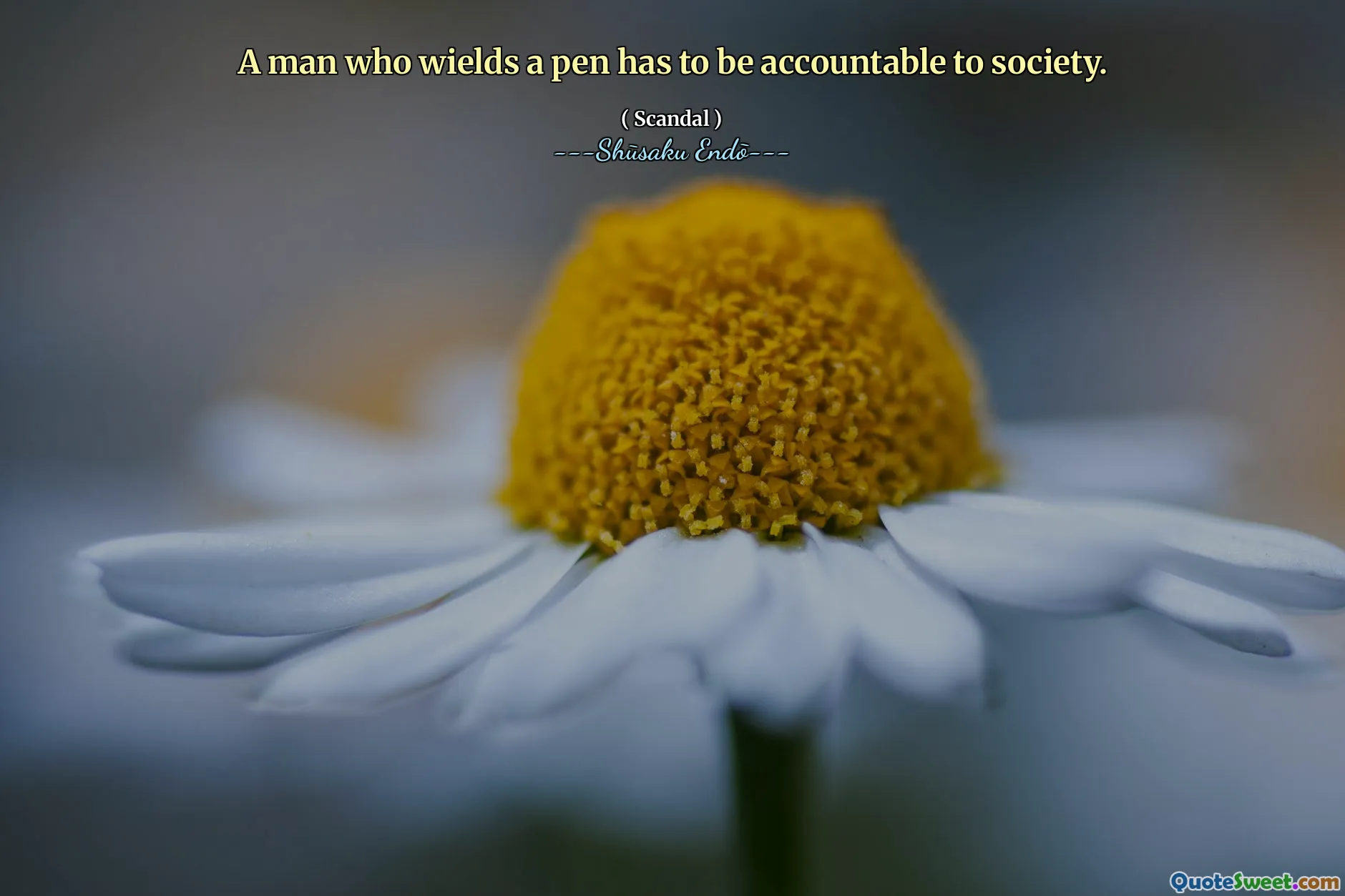
A man who wields a pen has to be accountable to society.
This statement from Shūsaku Endō's Scandal powerfully encapsulates the immense responsibility borne by writers, journalists, and anyone who uses words as their tool of influence. The pen, symbolizing writing and expression, is not just a means of communication but also a vehicle of power. Those who hold it can shape thoughts, shift perspectives, and alter societal norms. Consequently, the quote underscores the ethical imperative for such individuals to remain mindful of their impact on society.
Accountability here suggests more than just honesty; it involves a conscious consideration of consequences and a commitment to truthfulness, fairness, and integrity. In a world bombarded by misinformation and sensationalism, the phrase serves as a moral reminder that the written word carries weight beyond its immediate use. It becomes a beacon that can either illuminate or mislead.
Moreover, Endō’s words tacitly acknowledge the potential dangers of irresponsibility. When wielded recklessly, the pen can harm reputations, distort realities, foment discord, and erode social trust. The writer’s freedom is therefore not absolute but intertwined with social obligations.
This perspective promotes a culture where writers and communicators strive not only for creativity and impact but also for conscientiousness and accountability. It aligns well with contemporary discussions about media ethics, journalistic integrity, and the societal influence of narratives. Overall, the quote encourages profound reflection on one’s duty to society whenever one chooses to express oneself through writing.






